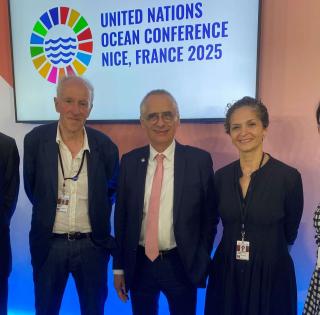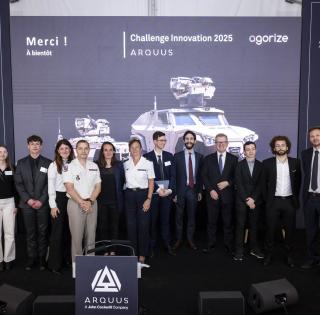
Interview with Laurent Guillou, head of the technical team that implements the campus' energy renovation policy and participates in the "no-waste" fight, on ongoing process to seek ways to save energy resources, in ENSTA Bretagne's real estate and logistics department (DPL), and the school's director general, Bruno Gruselle.
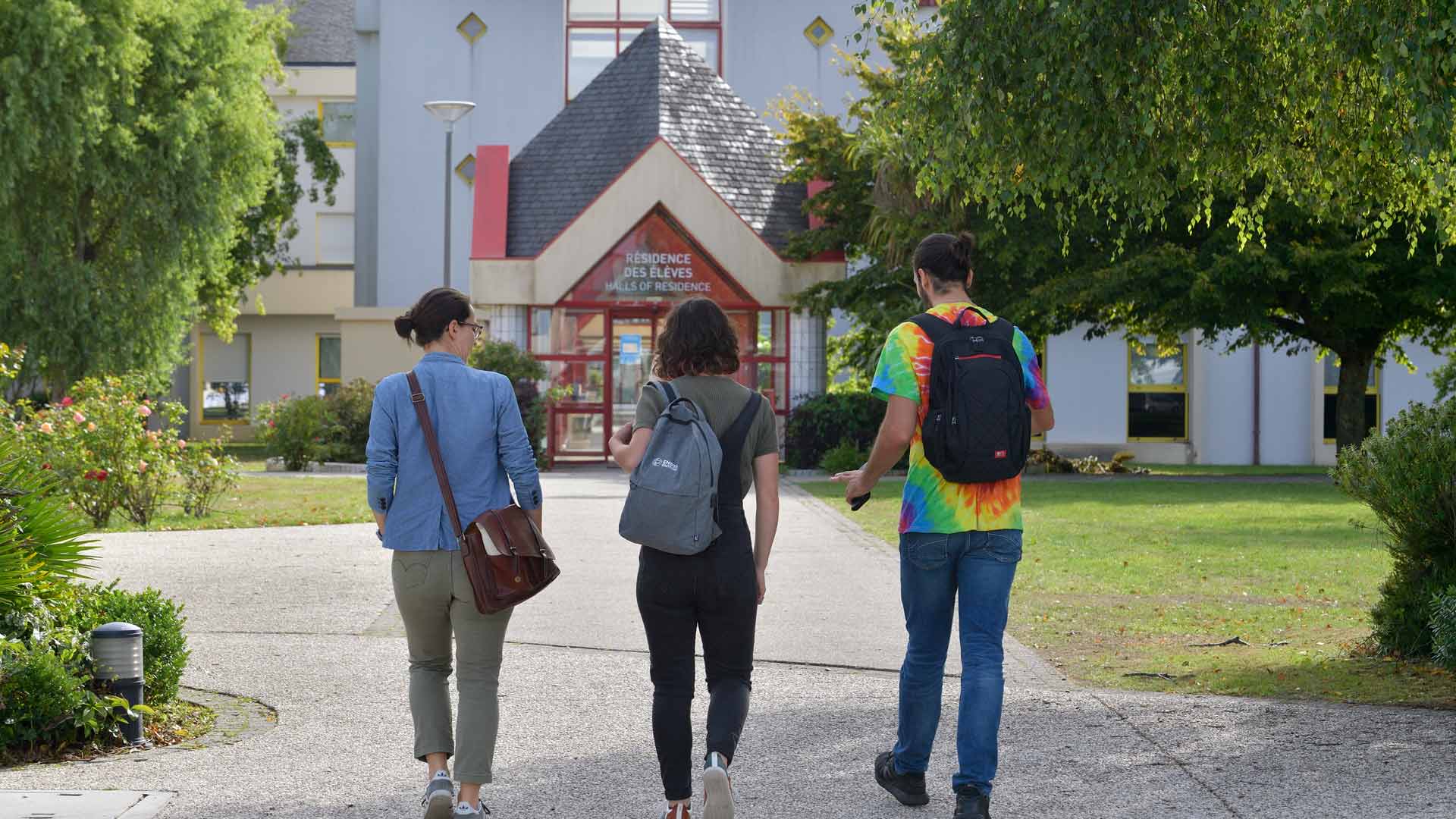
What effect has the energy cost increases had on a large school like ENSTA Bretagne?
Laurent Guillou:
"The energy need is divided equally between district heating and electricity consumption. ENSTA Bretagne is very much impacted by the exponential rise in energy costs, in particular the price of electricity. A public institution like ours has no tariff shield and is has seen its electricity bill skyrocket. We have just placed an order for more than one million euros of electricity for 2023 with EDF, a budget that has increased fivefold in two years, mainly due to the increase in prices and, to a lesser extent, to the growth in our activities and consumption. To this direct impact should be added the price increases in technical services which put a burden on the institution's operating and investment budgets, and in particular on our real estate construction and of renovation programs. »
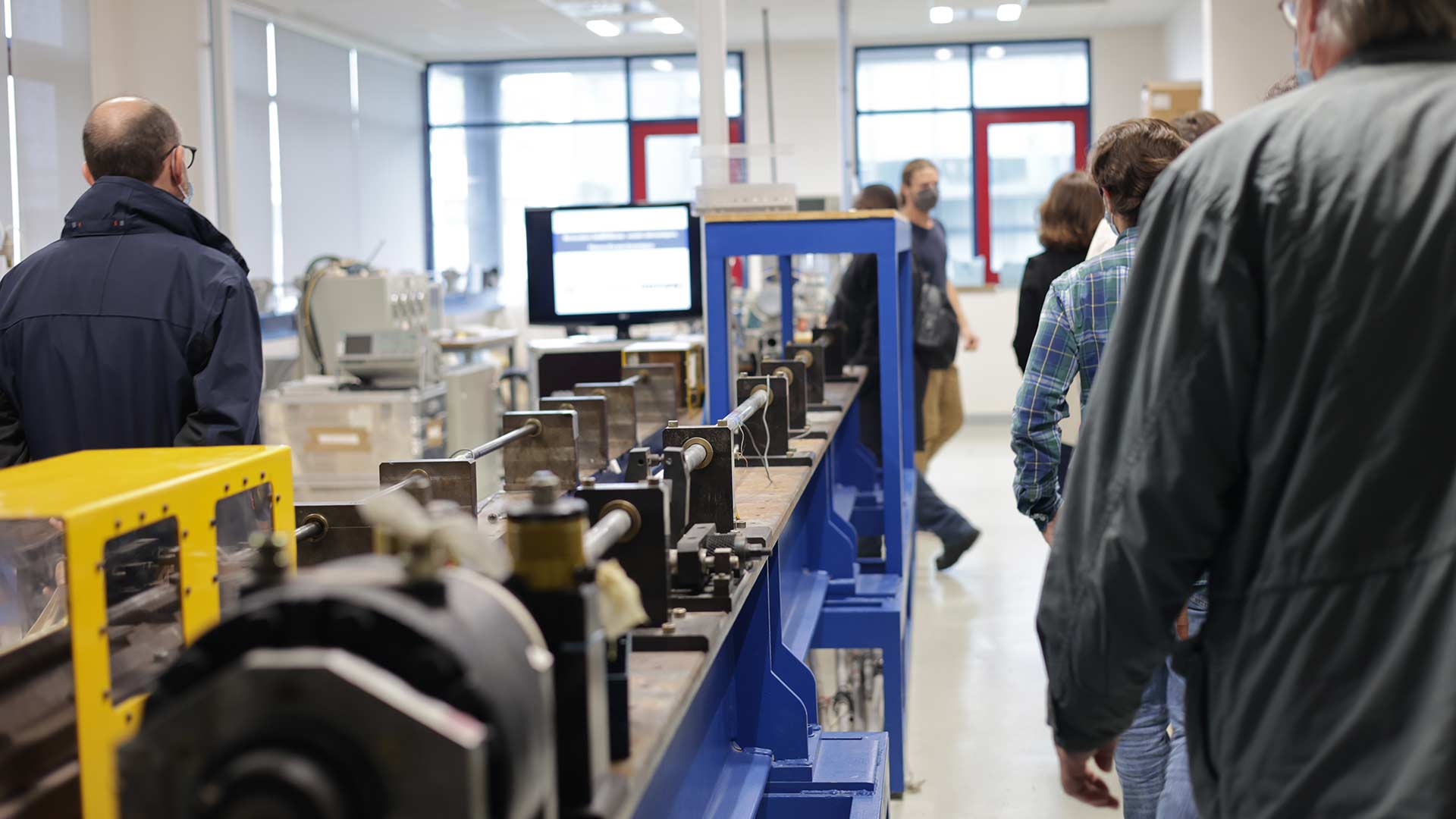
What steps are being taken to reduce electricity consumption?
Laurent Guillou:
"I can mention several examples of steps taken in recent months. They are of two kinds: technical optimizations on the one hand and reminders of "good practices" on the other.
We have reduced outdoor lighting hours in the school area while continuing to allow students to access to the computer rooms until midnight. In the students' residence gardens, the night lighting is now also turned off at midnight and turned back on again at 6:30 am.
Improvements in the cooling processes of the school's computer servers and the hydraulic machines used in the mechanical research center are also reducing our electricity consumption and improving our carbon footprint. We have identified new cooling thresholds for this equipment that do not compromise its proper operation. Specifically, at the mechanical science test center (IRDL laboratory), the oil-cooling target of the hydraulic machines on which various types of materials and assemblies are tested has been raised from 35 to 40 degrees.
In terms of "good practices" and all the individual steps that can contribute to reducing our energy consumption and improving our carbon footprint, we regularly issue reminders and raise awareness to ensure that all staff and students are mobilized, and will intensify them: turn off the lights in communal facilities, classrooms and amphitheaters, turn off PCs in the evening, remember to close windows, etc. »
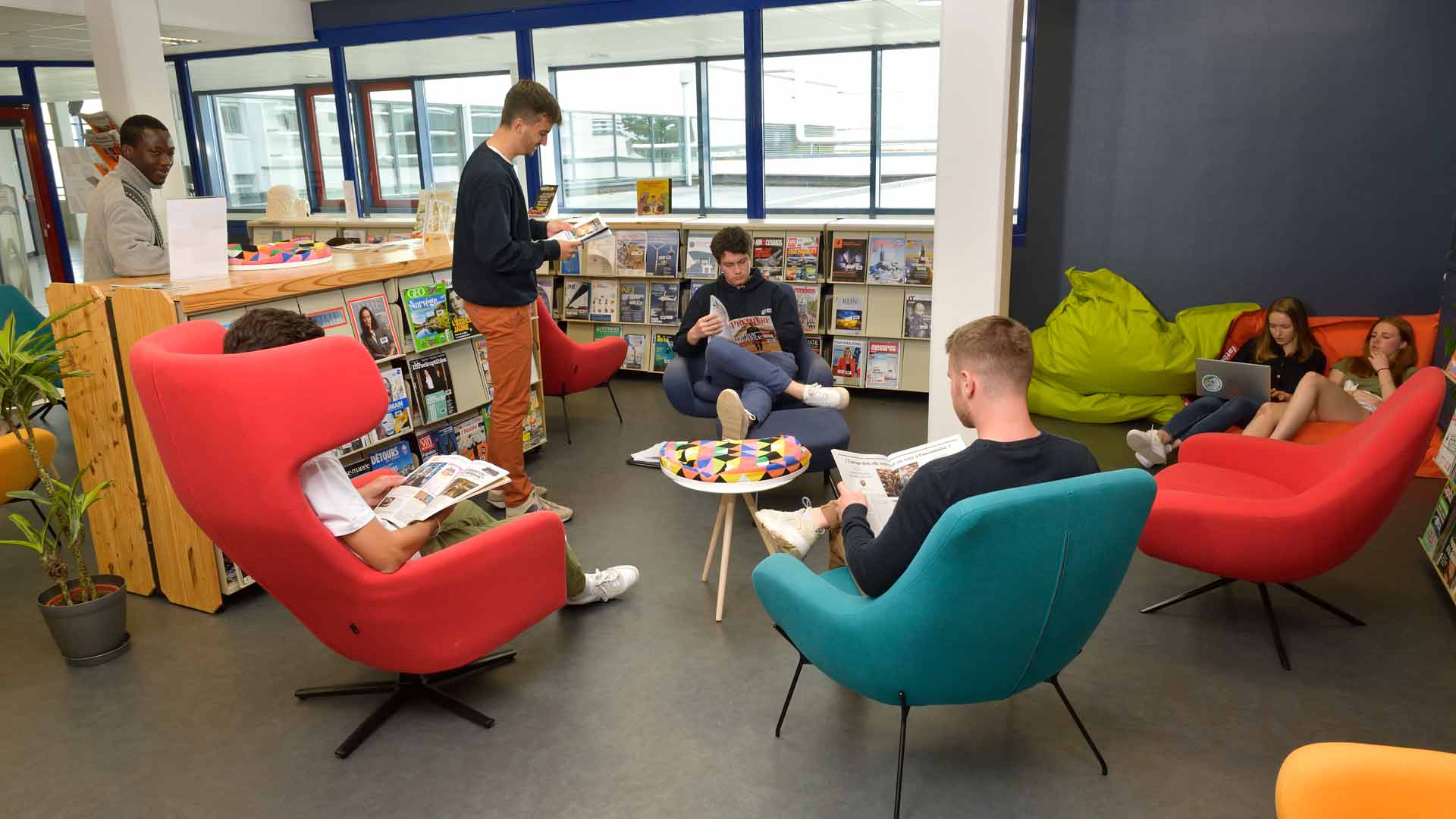
How can ENSTA Bretagne take action more widely and sustainably as regards its energy consumption?
Bruno Gruselle:
"Our institution anticipated the issue and initiated a plan to reduce its consumption. As far as heating is concerned, we are fortunate to be connected to the Brest Metropole's urban heating system. This energy comes from waste incineration and only 10% of this price is impacted by the increase in the price of energy. We are continuing to deploy LED lighting throughout the institution, which is already 70% so provided, which has the advantage of consuming 7 to 9 times less electricity than conventional lighting.
And a large-scale building plan aims to re-insulate and improve the energy performance of the ten or so older buildings, in particular the entire student residence. This represents an investment of 11.4 million euros. Work will begin in 2023 and continue until 2027.
We are committed to a 60% reduction by 2050 and a 40% reduction in almost all of our activities by 2030.
The quest to reduce energy consumption is part of ENSTA Bretagne's long-term corporate social responsibility policy. The mobilization of the school, its staff and students in order to reduce the environmental footprint of the campus is included in the five-year strategic contract that the institution signed with its supervisory ministry. This leads us to multiply initiatives, to be more virtuous in terms of mobility, and to initiate new educational and research programs. The inflationary context of this school of the school year contributes to speed up the process of change engaged. »














